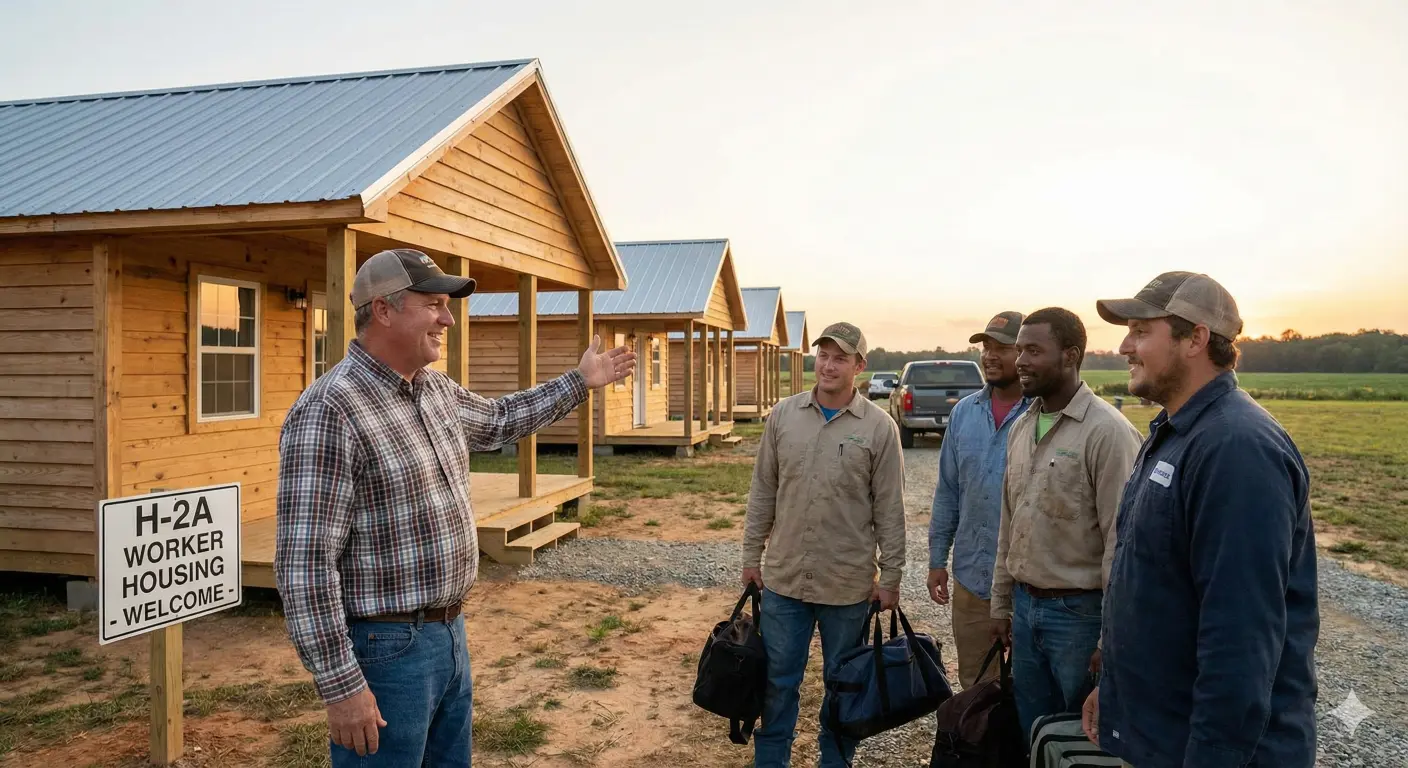Turn a Franchise into a E‑2 Visa Investment
The Dream Begins with a Franchise
Imagine stepping off a plane into the United States, passport stamped with an E‑2 visa, and keys in your hand to a thriving franchise location. No guesswork, no high‑risk startup drama—just a proven business model tailored for success. That’s the power of using a franchise to secure a U.S. E‑2 investor visa: structured, lower‐risk, and designed to impress immigration officers. In this 3,000‑word deep dive, you’ll learn exactly how to turn that dream into reality—from selecting the right franchise to crafting a data‑driven business plan, passing consular interviews, and growing your investment into a sustainable American enterprise.
Finding the right franchise for E2 visa success is crucial, especially when considering a franchise for E2 visa approval, as it can significantly enhance your chances of success.
What Is the E‑2 Visa & Why Franchises Make Sense
What is an E‑2 Visa?
The E‑2 Treaty Investor Visa is a non‑immigrant visa available to citizens of countries with treaties of commerce and navigation with the U.S., permitting those investors to enter and work in the U.S. by investing a substantial amount in a U.S. enterprise. It offers an initial stay between three months and five years—with indefinite renewals as long as the business meets criteria.
Why Franchises Are Ideal for E‑2 Candidates
Choosing a franchise for E2 visa allows candidates to leverage an established business model, thus enhancing their chances of visa approval.
Why Franchises Are Ideal for E‑2 Candidates
-
Franchises deliver a proven business model, lowering the risk of failure.
-
They offer training and support, helping foreign investors navigate unfamiliar markets.
-
Immigration officers view franchises favorably since verifiable structure and financial data increases credibility.
Why a Franchise Lowers Risk and Boosts Approval Odds
Proven Model & Brand Recognition
Franchisors standardize operations, marketing, supply chains, and brand identity. That means your investment isn’t floating on untested assumptions—it’s built on replicable success.
Support & Training Reduces Mistakes
From site selection to daily operations, franchises provide onboarding, manuals, and ongoing consulting—essential when bridging cultures and regulations.
Easier to Demonstrate “Substantial Investment”
Because franchisors publish typical startup costs and ROI, you can show concrete data in your application—rather than guesswork. Officials like clear dollar amounts tied to validated business structures.
Job Creation & Non‑Marginality
E‑2 applications benefit when the business shows capacity to generate enough income and employ U.S. workers—franchises commonly do both.
E‑2 applications benefit when the business shows capacity to generate enough income and employ U.S. workers—franchises commonly do both, especially when structured as a franchise for E2 visa.
Choosing the Right Franchise: Criteria & Case Studies
Selection Criteria
-
Investment Level: Most successful E‑2 franchise investments are $100,000 to $150,000+
-
Business Type: Service industries (cleaning, senior care, professional consulting) often require lower capital while creating jobs Visa Franchise.
-
Franchise Validation: Speak with current franchisees—see training, support, cash flow, satisfaction
-
Licensing & Regulation: Avoid highly regulated fields (medical spas, contracting)—they complicate licensing for foreign nationals; service franchises less so
-
Scalability & Projections: Choose brands with track records that support realistic projections for visa documentation.
Scalability & Projections: Choose brands with track records that support realistic projections for visa documentation, particularly those structured as a franchise for E2 visa.
Case Studies of Viable E‑2 Franchises
-
Senior care services: Options for Senior America, requiring $85K–$110K investment, recession‑resistant and creates jobs.
-
Residential services & cleaning: MaidThis ( $47–66K ), OMEX cleaning ( $52–82K )—amenable for smaller E‑2 applicants Visa Franchise.
-
Insurance agencies or coaching/consulting: Estrella Insurance or fitness/education franchises often fall below $100K while generating strong returns
How to Structure a Substantial Investment
Defining “Substantial”
The U.S. doesn’t set a fixed dollar threshold—but expects the investment to be proportionate to the total cost of the enterprise, and substantial enough to operate the business responsibly, not marginally.
Investment Breakdown
-
Franchise fee and brand deposit
-
Build-out, equipment, inventory
-
Licenses, legal fees, escrow funds
-
Marketing & operating reserve
Expert guidance suggests a general minimum of $120K–$150K to pass scrutiny, even if the franchise advertises lower figures.Marketing & operating reserve: Ensure your franchise for E2 visa includes a robust marketing strategy that aligns with operational needs.
Funds at Risk & Irrevocable Commitment
The funds must be truly at risk—not just on deposit. Examples: escrow accounts, leases signed, equipment purchased.
Active Involvement: Your Role in the Franchise Model
E‑2 Visa demands active direction—a passive investor won’t qualify. You must own at least 50% or exercise operational control (managing, hiring, marketing).
Franchise Owner Engagement
Ensure the franchisor allows your active involvement—some models may be absentee, which jeopardizes visa eligibility.
Role in Documentation & Interview
Be prepared to explain your daily involvement—supervising staff, managing finances, interacting with customers—in your business plan and consular interview.
Business Plan Essentials: Data, Projections, & Jobs
Why Business Plan Matters
A visa officer expects a detailed plan that shows the business is real, profitable, not marginal, and capable of creating U.S. jobs within five years.
Key Components
-
Executive summary of franchise
-
Investment & expense table
-
Revenue projections (3–5 years)
-
Jobs created with timelines
-
Market analysis & competitive landscape
-
Ownership & management structure proposal
Data‑Driven Approach
Use franchisor-provided financial disclosure documents (FDDs), industry statistics, city-level demand data—to back your plan with facts.
Job‑Creation Schedule
Show that in Year 1–2 you’ll hire at least 1 or 2 U.S. workers, scaling up as revenue grows. Even a small cleaning franchise can justify 3–5 jobs.
Navigating the Visa Process: Step by Step
When pursuing a franchise for E2 visa, understanding the visa process simplifies your journey to business ownership.
Pre‑Application: Preparation
-
Check Treaty Status: Confirm that your nationality is eligible (consult latest U.S. State Department list).
-
Engage Professionals: Work with an immigration attorney and business consultant experienced with E‑2 + franchises.
-
Franchise Agreement Signing & Funds Transfer: Make investment before applying; keep documentation showing risk and expenditure.
Application Submission
-
File DS‑160 and DS‑156E for investor
-
Prepare supporting documents: passport, FDD, lease, contracts, bank transfers, business plan, personal financial documents, proof of nationality, intent to depart.
-
Attend consular interview; be ready to explain plan, involvement, investment details.
Timing Considerations
Once investment is made and documents assembled, obtaining the visa can take 4–6 months — planning in advance is key.
Managing Ongoing Operations & Renewal Strategy
Operational Success
Run the business as envisioned. Keep accurate accounting, payroll records, and evidence of hires. Maintain regular contact with franchisor support.
Renewal of E‑2 Status
E‑2 visas are renewed every 3 to 5 years, depending on your country’s arrangement, as long as the business remains operational, non‑marginal, and you remain actively involved.
Family Benefits
Spouse and unmarried children under 21 receive derivative E‑2 status. Spouses are eligible to work once they secure EAD (employment authorization).
Risks, Pitfalls & How to Mitigate Them
Common Risks
-
Underinvestment: Too-small funding raises suspicion your business may be marginal.
-
Passive Ownership: Treating the franchise like a passive investment disqualifies your E‑2 application.
-
Over‑regulated industries: Licensing hurdles may delay or prevent operation.
-
Language/cultural barriers: Lack of English fluency can hamper communication with franchisor and customers.
Mitigation Strategies
-
Commit sufficient funds (above $120K benchmark)
-
Clarify operational role with franchisor; avoid absentee models
-
Choose industries with straightforward licensing
-
Ensure you or your manager are fluent in English and understand U.S. regulations
Success Stories: Real Investors Who Made It Work
Investing in a franchise for E2 visa can be a life-changing decision that opens doors to new opportunities in the U.S.
-
Senior Care Franchisee from Latin America invested under $100K in a care services business; within 18 months employed 3 local aides and generated revenue exceeding projections.
-
Cleaning Franchise Owner invested $60K in MaidThis model; revenue in first year hired two local employees and increased sales by 25% in year two.
-
Insurance Agency Investor from Europe used Estrella Insurance franchise investment ($75K–85K range), showing strong financial projections and job creation plans, achieved E‑2 visa approval quickly.
(These are composite case‑style summaries based on industry‑published examples.)
Benefits for Clients: Why Choose This Strategy
-
Structured, lower‑risk approach: Franchise systems reduce trial‑and‑error and increase predictability.
-
Stronger visa credibility: Proven brand, real disclosure data, and support strengthen your case with immigration authorities.
-
Job creation: Demonstrates compliance with non‑marginality and U.S. economic benefit.
-
Ongoing support: Franchisors offer training, tools, supplier networks—helpful for newcomers.
-
Scalability: Many franchises allow rapid expansion once first location succeeds.
-
Family inclusion: Permits spouse and children; spouse may work legally in the U.S.
3A Immigration Services Marketing CTA Before Conclusion
Utilizing a franchise for E2 visa provides a structured, efficient pathway to achieving your American dream, offering both financial and personal rewards.
If you’re ready to leverage a franchise as your pathway to E‑2 visa success, 3A Immigration Services is here to help. Our specialized team works exclusively with franchise‑based E‑2 cases—guiding you through franchise selection, investment structuring, business planning, and consular preparation. We help you align your investment with visa requirements and support you at every step from negotiation to renewal. Contact 3A Immigration Services today to schedule your free initial consultation and begin building your U.S. business dream.
Conclusion
Turning a franchise into a viable E‑2 visa investment offers aspiring entrepreneurs a powerful and structured path to doing business in the United States. By choosing a validated franchise for E2 visa with the right investment level, preparing a data‑driven business plan, actively managing operations, and working with experienced professionals, you maximize both your business success and immigration approval odds. While no visa path is entirely without challenge, a franchise for E2 visa provides a tested framework—making your E‑2 visa application stronger and your entrepreneurial journey smoother. With careful planning, strong execution, and the right support, your franchise can become your American success story—while keeping the risks manageable and the rewards substantial.





